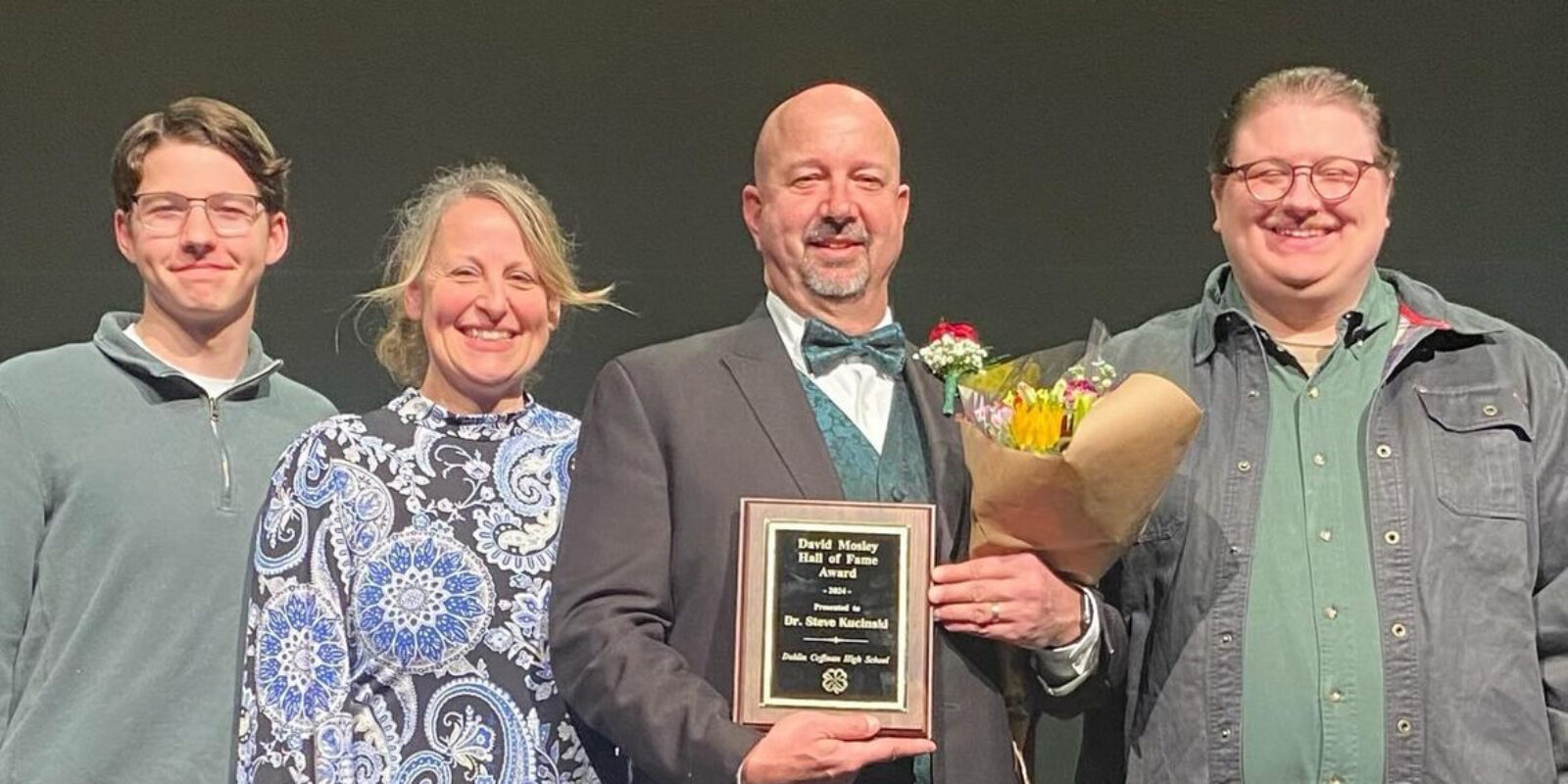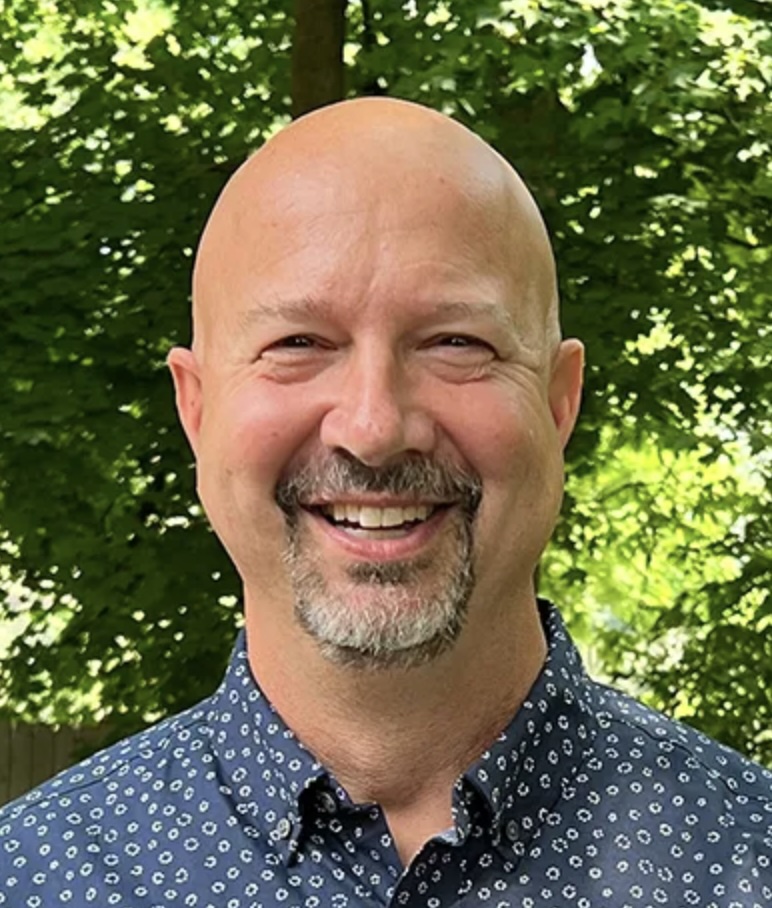
Steve Kucinski, a three-time alum from the college, is renowned for his innovative and student-centered approach to teaching. His classroom has been described as a “glowing beacon of refreshing new possibilities” and a welcoming atmosphere that fosters learning and well-being.
His dedication extends beyond the classroom, ensuring students are both challenged and supported. It is no wonder that someone as passionate as Kucinski would be the recipient of the 2024 District 7 Ohio Teacher of the Year award.
And that’s not all. The National Council of Teachers of English (NCTE) and the Ohio Council of Teachers of English Language Arts will announce him as the 2024 High School Teacher of Excellence honoree in November.
For some, choosing a career path can be a hard decision. Kucinski fell in love with teaching in high school, inspired by his teacher, Dorothy Keith, other amazing mentors and his desire to work with people.
“Steve is a true expert in his field of teaching and learning, and his ability to inspire students of all backgrounds and abilities at Dublin Coffman High School is truly remarkable.”
Todd F. Hoadley, PhD, CEO/Superintendent, Dublin City Schools
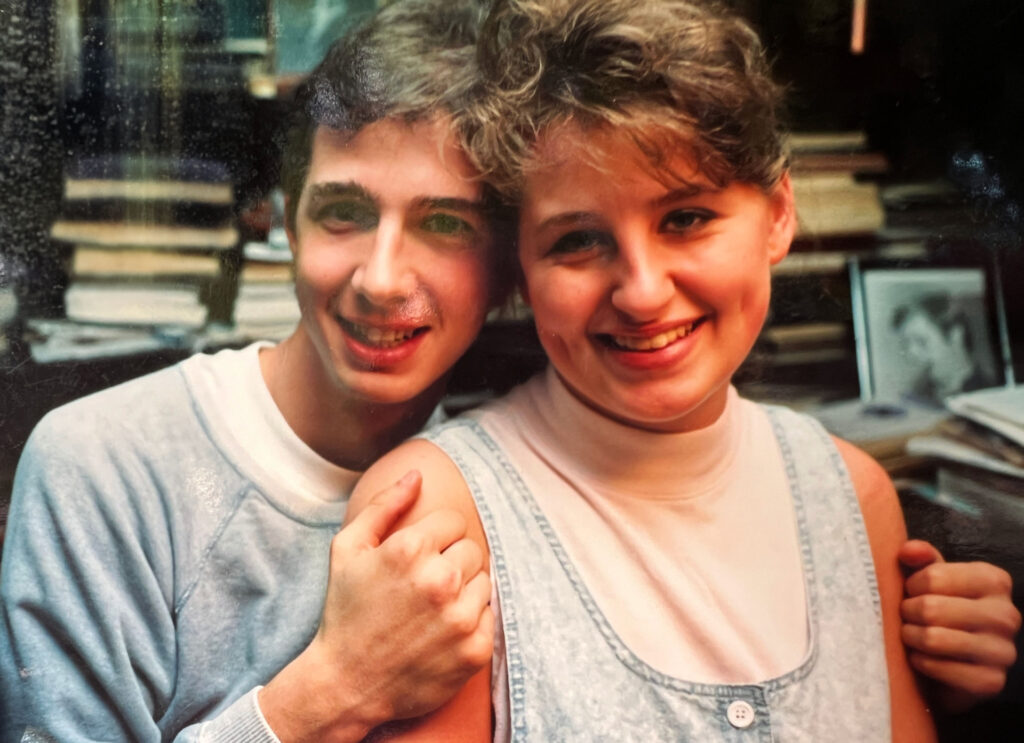
Kucinski began his teaching journey at Ohio University but soon transferred to Ohio State to be closer to his high school sweetheart, to whom he has been married for 32 years. He not only closed the gap on a long-distance relationship, but he also discovered what he calls “an amazing teaching program.” He obtained his BA in English Education in 1993.
He hit the ground running with excellence, beginning in Newark City Schools from 1993-1999. By 1995 Kucinski was nominated district teacher of the year. Afterward, he joined Dublin Coffman High School, where he remains.
The best teachers never stop learning
Over the years, Kucinski wanted to gain a better understanding of the other side of the desk. He returned to his alma mater for a master’s. His goal was to simply be a better teacher for his students. His curiosity to learn more helped him understand how decisions were made in buildings, and how to balance the needs and wants of teachers who are passionate about their work.
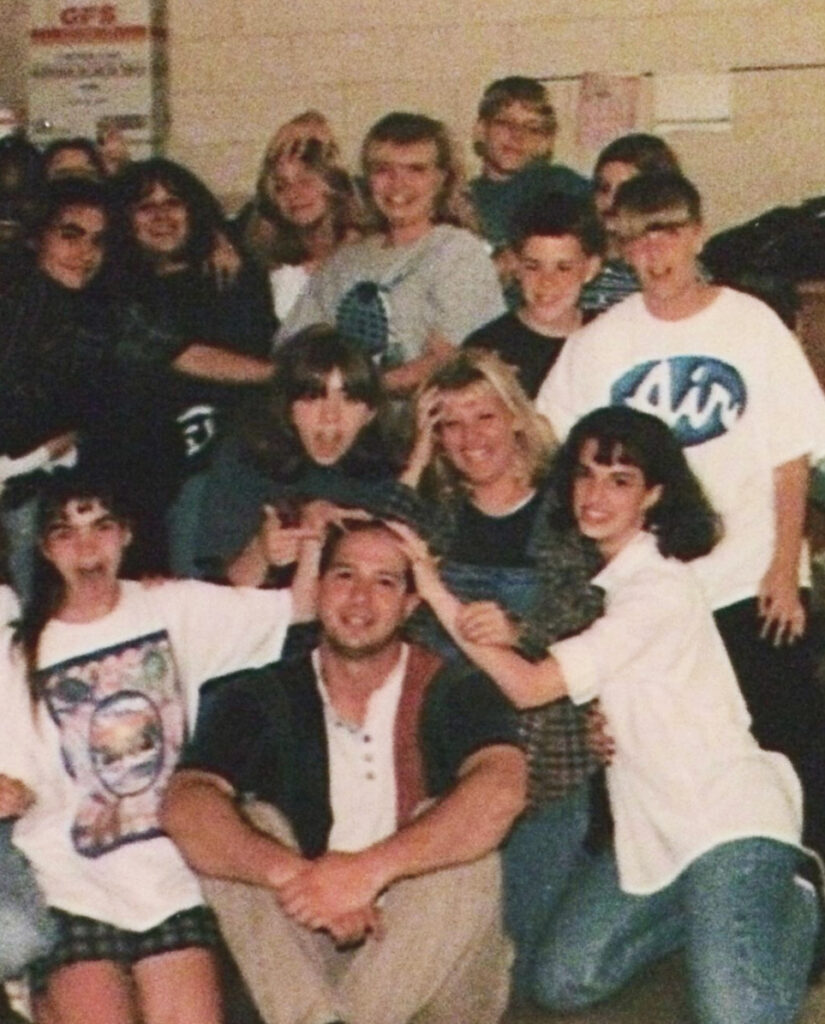
Although his additional degree could have led to a principal position, Kucinski’s love for teaching kept him in the classroom – and he didn’t stop there. Inspired by former educational psychology professor Heather Davis’ course on adolescent development, Kucinski pursued his PhD. He was supported by his master’s advisor, Professor Emeritus Wayne Hoy, who also convinced him to earn his principal licensure. Kucinski is thankful for mentors who provided valuable perspectives on teaching, significantly shaping his career.
Research leads to discovery
Moving into his PhD program, Kucinski studied how adolescents form impressions of teachers and how that leads to reputation.
Realizing that students often discuss their teachers, positively or negatively, he raised the question, “How do you know that?” He observed that students tended to repeat what they heard as fact before even meeting the teacher.
Because students have prejudged him as well, Kucinski learned that people can cultivate and use a positive reputation to their advantage, creating a more relaxed vibe before the student comes into the classroom.
In an aim to find out what students looked for in a teacher, Kucinski recruited subjects, observed them during their first day of school, while receiving their schedules and when meeting their teachers. He collected their thoughts, then continued observations throughout the year and beyond.
“The weirdest thing that came out of (the study) was one of the most supportive teachers was so supportive, (students) actually stopped trying that hard in the class,” Kucinski said. “Then, to my astonishment, they were bad-mouthing her for being a bad teacher because the class was too easy. … I wanted to say to the students, ‘This is the exact thing we’re supposed to be doing. We’re supposed to be supporting you.’ ”
He believes the issue deserves to be studied more.
Philosophies and pedagogy
Kucinski’s student-centered focus has been at the forefront of his career. Known for his ability to inspire students through connection and relationships, he creates a safe and open environment.
“When you think of the school atmosphere, walking down monotonous gray cinder block hallways, passing hundreds of unfamiliar faces, all in a hurry to their next class — it’s not unthinkable that one might feel like a tiny planet in an endless galaxy… that is until seventh period when I walked through the door of Dr. Kucinski’s room. … It was the first classroom where I had ever experienced a sense of calm. … Each day he would come in with energy, no matter if anyone else did. Instead of just speaking to the class as a whole, he directed specific attention to each and every person — every day. It takes a really special person to spread your love across hundreds of students just to make them aware they are important.”
Kucinski’s former high school student
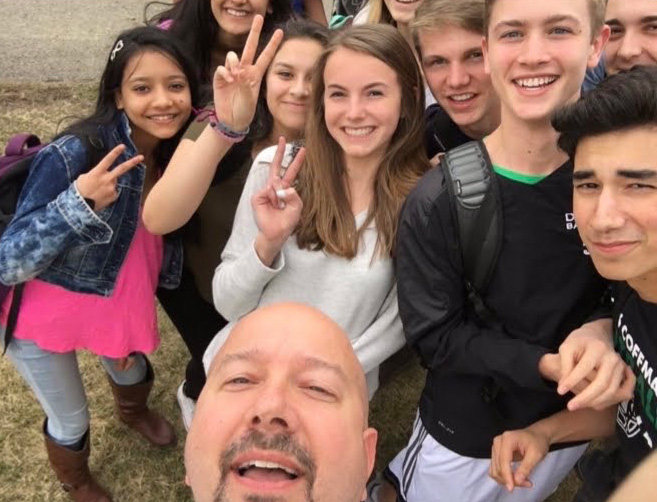
From the moment students walk into the classroom, Kucinski makes it a point to greet and chat with them. He also checks in because student mental health is a top priority. Even if students say they are fine, they express appreciation that he’d asked.
“It all starts with the student’s need to know more than ever that you care about them as people,” Kucinski said. “Classroom culture has changed but society’s message is still to figure it out on your own, tough it out. … But students are isolated and struggling … We encourage them to get involved in new sports, clubs and activities.”
Kucinski’s advice to young teachers is to remember what it was like to be a student. Students have a lot to deal with, despite their youth. Kucinski learned that pushing them too hard was not the way.
Instead, he encourages student success by helping them understand the content’s connection to the real world. By emphasizing innovation and allowing students to have a voice in their assignments, he takes them beyond just practicing for the test or focusing just on grades.
When the student has to worry about whether they will pass or fail, they are less likely to take chances on their assignments or go outside the box, Kucinski said. Changing that expectation helps ease their minds.
Kucinski notes that while occasional penalties for repeated issues are necessary, real-world consequences are often less severe than a failing grade. For instance, “being late on a payment doesn’t mean losing your house,” he said. “The bar exam can be taken many times, and small mistakes in the private sector rarely lead to job loss.”
“We’re asking young people to live up to these impossible standards. … (Students) need to learn how to work with people, be creative and communicate.”
Warm Demander
As relaxed as Kucinski’s classroom sounds, he is no passive teacher. He prefers what the field calls the Warm Demander pedagogy. The teacher sets expectations, embraces failure, all while encouraging students to challenge themselves and live up to their potential.
“I want to be able to tell you that wasn’t okay … this is what I expect from you, and I’ll help you get there, behaviorally, emotionally, academically, but we need to be okay with that wasn’t your best, yet.”
He is also not afraid to admit when he’s wrong and will be quick to apologize when he makes a mistake. “I think they need to see that we all make mistakes, and it’s not just, ‘I’m the teacher, I’m in charge.’”
Making an impact
Kucinski is recognized for stepping outside of the classroom and celebrating his students’ achievements. Attending performances, sports games, giving daily affirmations, Kucinski is known by parents, students and administrators for how much time he invests in his students.
An important involvement for Kucinski was JustWriteOhio, consisting of a creative writing competition team. “We won the state competition four years in a row…it’s just celebrating creative writing.” He also enjoys working with the freshman mentor program, which he has done for about 20 years. The first-year experience for them is very important as Kucinski recognizes the impact it can have on them throughout high school.
“Steve recognizes that the role of the teacher extends beyond the classroom walls. He learns about his students, supports them in acquiring strong literacy skills and serves as a model of empathy and commitment. He attends their events outside of school and celebrates important moments in their lives with their families. Countless students have benefitted from his encouragement and support, and many connect with him after graduation to thank him for the support that he gave them on their learning journey.”
Jill G. Reinhart, Director of Literacy and Learning, ESC of Central Ohio
Learning to adapt
Being a teacher isn’t without its challenges. The world has had to adjust to big changes, and the past few years have been no exception. Despite remote and hybrid learning and AI in education, Kucinski remains hopeful and positive.
Instead of fighting against the world of AI, Kucinski believes that we must be more innovative in getting students to enjoy what they’re doing. He emphasizes giving them opportunities to choose and to have a voice. Although it isn’t going to be a quick fix, Kucinski focuses on professional development that allows him to be more innovative in the classroom. Through the Teacher Leader Liaison Network, he works with teachers from all over Ohio, discussing and sharing best practices and strategies for his district.
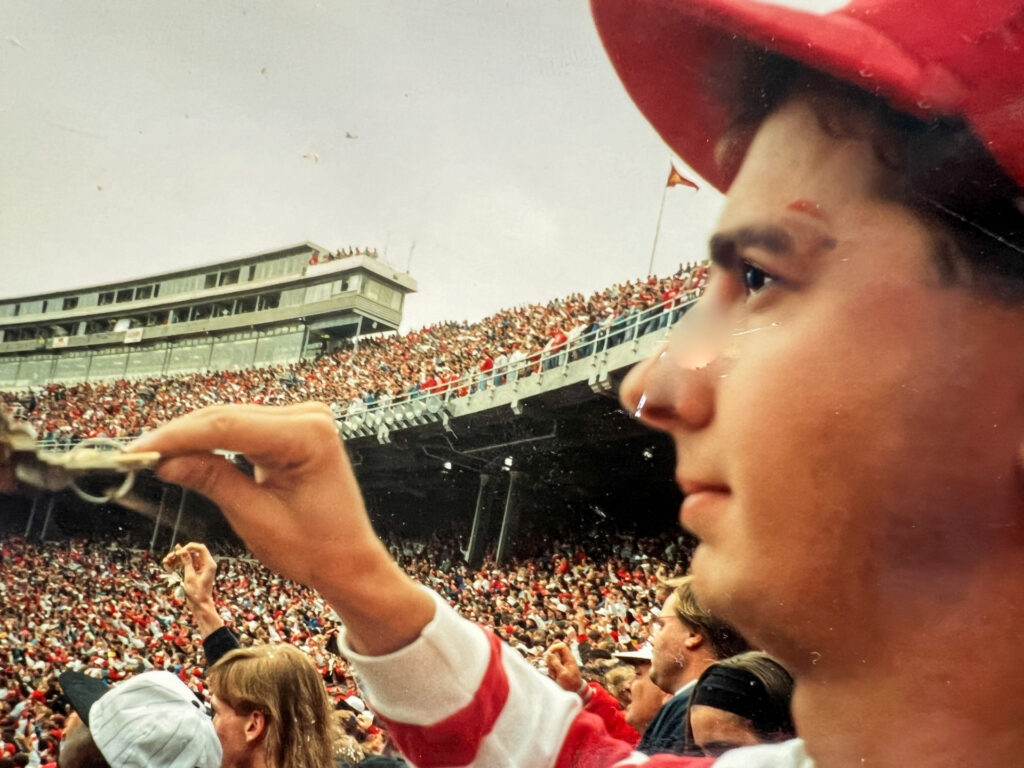
You never truly retire
Kucinski puts a lot into his teaching, but at the end of the day, he wants his students to be okay and healthy in every way possible.
“Thirty years ago, I wanted them to be great readers and writers. I still want that, but there’s so much more. … We want them to work on their passions. We want them to do whatever they want to do successfully. … We want them to know that we’re practicing what we preach. If we want them to take risks and chances, we’re going to support them. We’re going to do it ourselves as teachers.”
Kucinski keeps every positive note that he has ever received. They help motivate him to put his all into teaching for the sake of the student. Even when it’s time to retire, he may never truly settle down. He is not the type to stop the work he has set out to do.
